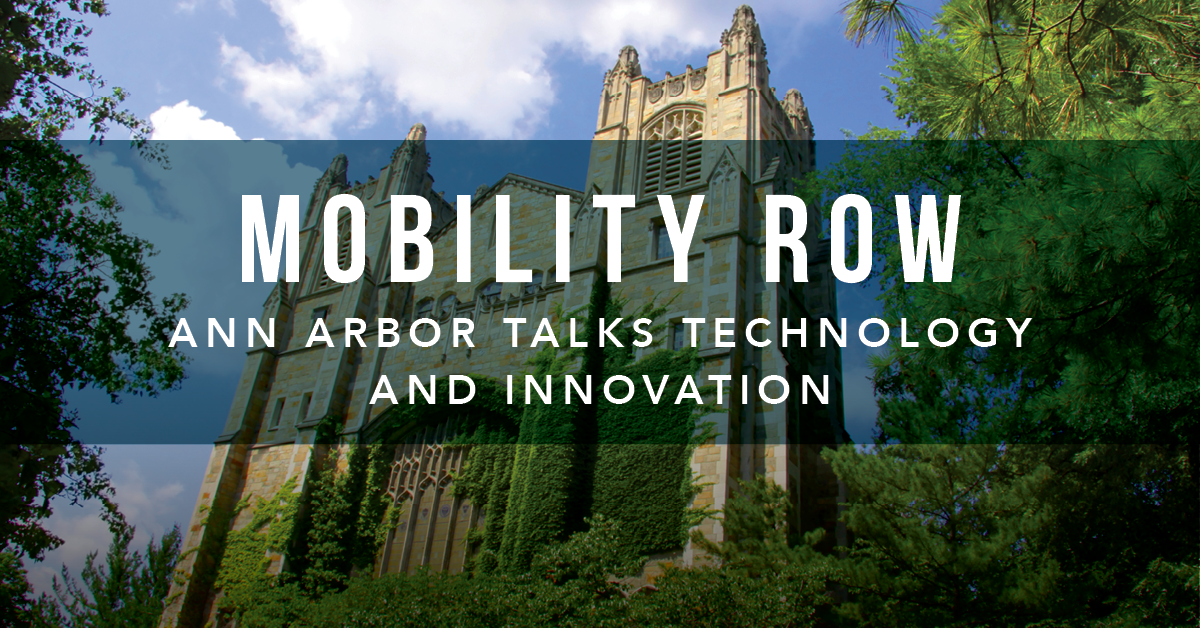
Ann Arbor is a bustling, vibrant town, sporting an exciting blend of campus, commercial, and community life. With the University of Michigan practically growing directly out from the city center, there is a real sense of a thoughtful progressivism and ideas-first culture that pervades and informs citizens’ opinions on a variety of topics, from politics to technology.
The same can be said for transit technology and its place within the local community. As a participating vendor at this year’s a2 Tech Trek Mobility Row — an event that allows leading technology companies to open their doors to the public and showcase their latest innovations — TransLoc was one of many mobility service providers sharing their unique vision and promise for a more seamless and equitable transportation experience for all. Alongside Spin, a sister company within Ford Smart Mobility*, we had the opportunity to speak with local students, technology enthusiasts and curious passersby about our ongoing efforts to make the management, visualization, and accessibility of both fixed route and on-demand ridesharing services as simple as possible for agencies and riders alike.
This idea didn’t take long to catch on with the people to whom we spoke and we quickly began gaining thoughtful rider insights. Residents expressed a need for an increase in agency-owned and demand-based ride services that will empower those in the area with limited mobility. Recent graduates reflected on the importance and value of on-campus route visibility and accessible, on-demand vehicles to enhance the overall campus experience. Local professionals, generally interested in our technology and its broader application, openly brainstormed ideas about how ridesharing, fixed-route bus tracking, and transit data visualization could be incorporated into the area’s broader commercial ecosystem.
Even with this excitement and an acknowledgement of the need to move forward, questions and challenges exist in most communities around the country. Sociopolitical factors still inform the mobility decisions that impact current generations of citizens, and maintaining consistent levels of funding for transportation remains a broader challenge facing cities and transit authorities. However, when a city possesses the ability to embrace technology, they are able to create a more integrated transportation experience — whether it be in the form of autonomous vehicles, ridesharing, or any of a number of avant-garde advancements on display up-and-down their city streets.
Ann Arbor is one of the thousands of towns and cities across the country looking eagerly towards what the future of transit technology could stand to mean for its community. As TransLoc continually works to empower agencies within cities and on campuses to ultimately make public transit the first choice for all, it is important to consider the impact that a community’s voice can have in making that vision a reality.
For more on the changing landscape of transportation and those that influence it, check out thoughts from TransLoc’s Doug Kaufman in The Atlantic.
Interested in microtransit, but not sure if it’s right for your agency? Watch this webinar to learn how data can help you understand your rider’s needs. Or talk to an expert about TransLoc’s fixed route, on-demand microtransit and GTFS solutions.
*On March 1, 2022, global technology company Modaxo acquired TransLoc from Ford Motor Company. TransLoc is no longer affiliated with Ford or any Ford properties.